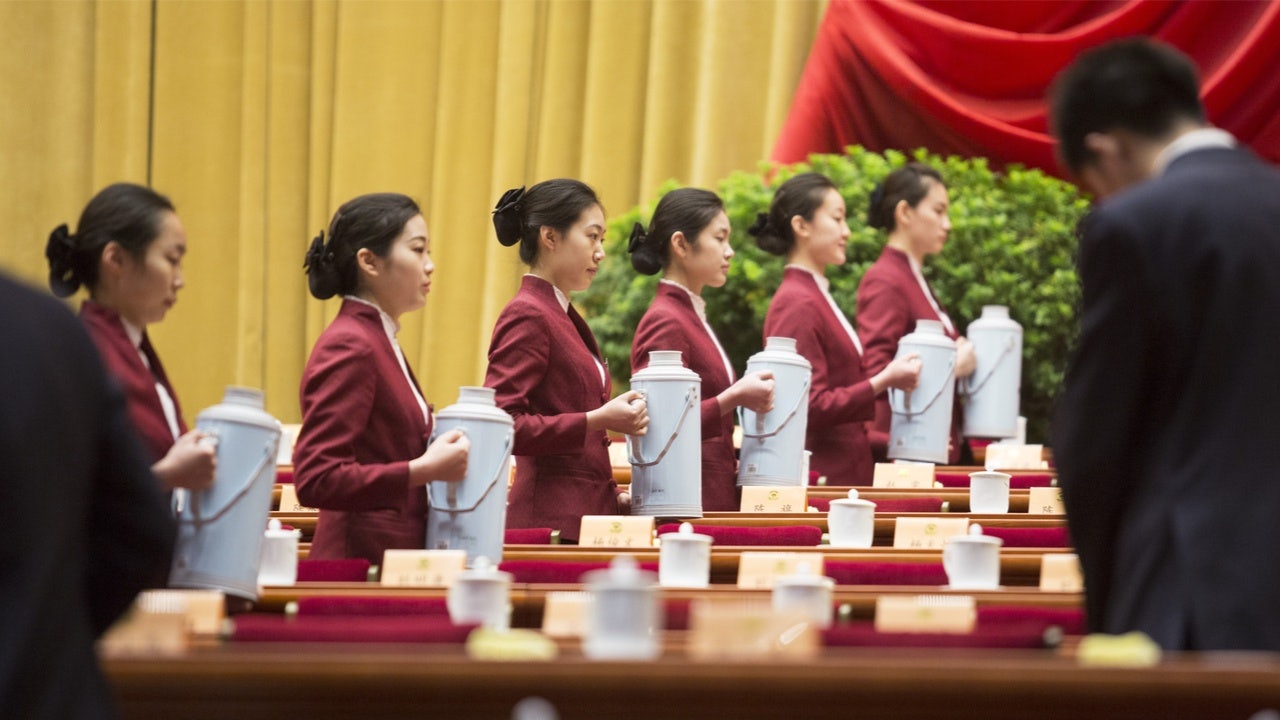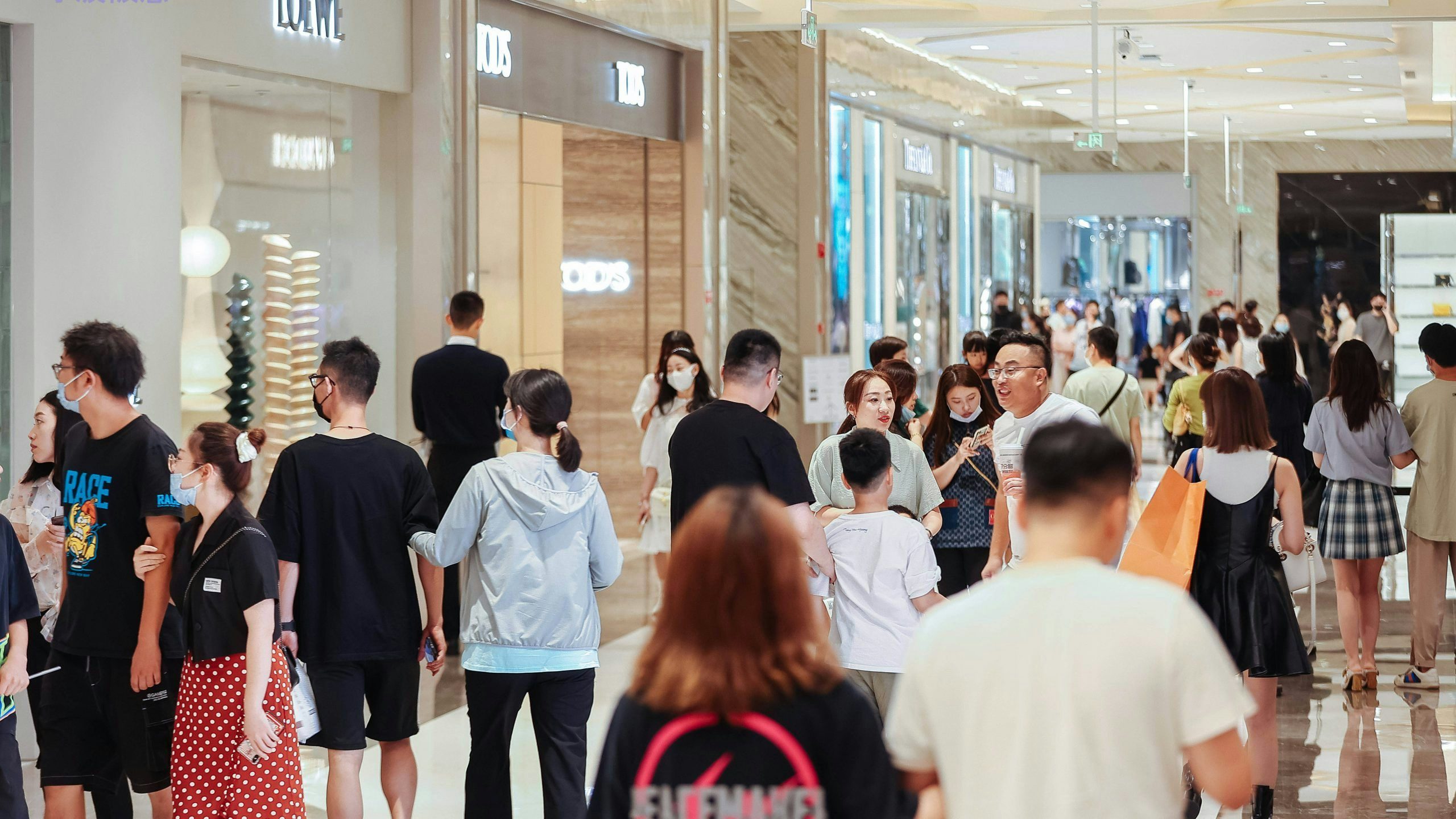China’s annual landmark political event, the Two Sessions, or Lianghui 两会, — in reference to the two meetings of the National People’s Congress (NPC) and the Chinese People’s Political Consultative Conference (CPPCC) — took place between March 4-11. More than 5,000 of the mainland’s political, business, and social elite gathered at the event in Beijing.
One of the main objectives was to confirm and release the Government Work Report (GWR), which includes the anticipated GDP growth target. This year, the target (around 5.5 percent) was confirmed by Chinese Premier Li Keqiang during the opening forum of the fifth session of the 13th NPC on March 5. Although below last year’s 8.1 percent — owing to the Russian war against Ukraine, ongoing pandemic concerns, and mounting domestic pressure — the number was still higher than anticipated. For example, economists at Goldman Sachs believe the percentage growth will be around 4.5 percent.
The GWR also set economic and social development goals for 2022, such as creating more than 11 million new urban jobs, keeping Consumer Price Index growth at around 3 percent, and decreasing the deficit-to-GDP ratio from 3.2 to 2.8 percent. (“Stable growth” has been emphasized as a key word for the year.)
Additionally, policy priorities were discussed at the event. Here, Jing Daily identifies five takeaways from the Two Sessions and how they might impact on luxury.
Common Prosperity#
In August 2021, the news of President Xi Jinping’s “common prosperity” agenda sent luxury stocks tumbling. During the Two Sessions, the topic was brought up again and offered reassurances for luxury players.
According to Zhou Dewen, an economist and deputy director of the Central Economic Committee for Democratic Progress, to promote “common prosperity” is by no means to engage in "egalitarianism" or equal wealth distribution. Rather, the idea is that universal prosperity entails a certain degree of wealth gap.
In light of this, luxury’s opportunities may be in the lower-tier cities. The country is aiming to improve income in remote and rural areas among low income groups: to expand middle income, as well as improve taxation — adjusting excessive earnings and prohibiting illicit incomes. Lastly, the promotion of philanthropy was proposed as a top priority.
Livestreaming and internet regulation#
The speedy growth of China’s livestreaming sector has attracted supervision from the government: in 2021, the once-top livestreamer, Viya, was fined 210.2 million (1.34 billion RMB) for concealing personal income and false declarations.
At the Two Sessions, several Chinese national representatives recommended new regulations for the livestream e-commerce sector. These include new professional licenses, tax codes, and more detailed livestream categories — to reduce infringements by hosts. While labels must be careful when selecting the right partner, a better regulated environment seems more inviting to companies that are hesitant to test the waters of this nascent field.
Meanwhile, cyber violence was also a hotly debated topic at the proceedings. And on Weibo — #Strictlyprosecutecyberdefamationandothercrimes has been trending on the local microblogging platform, amassing over 170 million views. Wei Shizhong, a member of the National Committee of the Chinese People's Political Consultative Conference and vice president of Henan University of Science and Technology, suggested making serious cyber violence a matter for public prosecution.
Digital Economy#
As China enters a high quality development stage, the Government Work Report listed four pillars for the digital economy: to promote technological innovation; optimize and upgrade industrialisation; break through supply constraints; and qualitative growth.
These goals will be achieved through three action plans. Firstly, by strengthening scientific research and technological innovation. Secondly, increasing incentives for corporate innovation. Finally, enhancing the core competitiveness of the manufacturing industry: such as 5G, big data center, artificial intelligence, industrial Internet, and industrial digitization.
Xiao Yaqing, the Minister of Industry and Information Technology, shared that this year they will work to ensure the number of 5G base stations tops 2 million (up from the current 1.43 million). As technological advances gather pace, heritage brands must be prepared to keep up. This means upgrading both on and offline experiences: to stay relevant to local consumers.
Aging population and childbirth#
Last year, the nation’s birth rate hit a historic low. As such, the issues of an aging populace and low childbirth have been top of the agenda. A number of representatives have set up pronatalist measures and lifted all family planning restrictions. These include tax deductions for families raising multiple children, maternity leave payments, extension of paternity leave, and free kindergarten for third children.
Over on Weibo, the family planning topic stirred debate. Many young people shared how overwhelming economic, work, and social pressures were reasons for not having babies. And — given the low birth rate — besides young consumers, luxury companies should start doubling down on their efforts to target the vast graying population. Indeed, that the over-60s group now accounts for 18.7 percent of all citizens has sounded an alarm for the government, which called to build a more senior-friendly society with infrastructure to improve their lifestyle.
Carbon Targets#
China has set two major carbon emissions goals: reaching peak carbon emission by 2030 and carbon neutrality by 2060. At the event, leaders and delegates from private sectors including Geely’s Li Shufu, Xiaomi’s Lei Jun, Baidu’s Robin Li, and Tencent’s Pony Ma discussed ways to achieve net-zero emissions.
New energy vehicles, recycling, and low-carbon technological innovations were all proposed. The NPC delegate and founder of carmaker Geely Automobile, Li Shufu, suggested the adoption of methanol-powered vehicles. NPC deputy Lei Jun, founder and CEO of electronics outfit Xiaomi, proposed establishing a nationwide recycling system for e-waste. Robin Li, CPPCC delegate and founder of Chinese search engine Baidu, recommended “Green AI:” using green electricity and AI powered technology to improve energy efficiency and carbon emissions everywhere from roads to data centers. And, NPC member and founder/CEO of Tencent Holdings Pony Ma mentioned the potentiality of “blue carbon” — the carbon stored in the sea.
As China advances in its efforts to cut carbon emissions, public awareness on issues such as climate change and the linear economy will visibly increase — something that will affect global luxury brand’s day-to-day operations and supply chain requirements.



